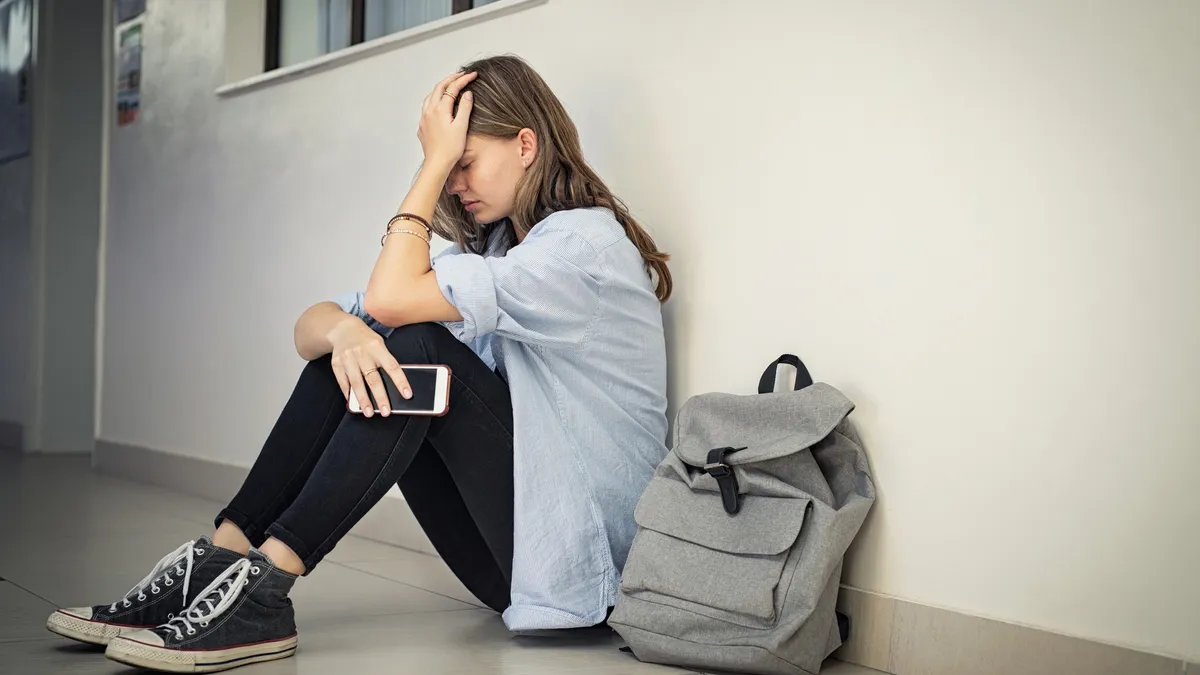Dive Brief:
- Students who are suspended or expelled can experience elevated rates of depression through their teen years and into early adulthood, according to research from sociologists at the University of Arkansas.
- Previous studies connect suspensions and expulsions to a range of poor academic outcomes, such as lower standardized test scores and graduation rates. But this study provides new insights into the impact on long-term mental health patterns, according to researchers.
- Some 786,600 K-12 students received one or more in-school suspensions and about 638,700 got one or more out-of-school suspensions in the 2020-21 school year, the most recent civil rights data from the U.S. Department of Education shows. The data also shows Black boys are disciplined at higher rates — representing 8% of K-12 enrollment, they receive 15% of in-school suspensions, 18% of out-of-school suspensions and 18% of expulsions.
Dive Insight:
The University of Arkansas research findings emphasize that exclusionary discipline is not only an educational concern but a significant public health issue that requires policy interventions.
“Broadly speaking, we definitely need discipline reform,” said Alexia Angton, assistant professor of sociology and criminology at the University of Arkansas, in a news release. “What can we put into place towards lessening the effects of suspension and expulsion down the line?”
The report highlights the significant role schools can play in protecting youth mental health by incorporating a holistic and compassionate approach to behavior issues.
Restorative justice, which works through relationship building rather than punishment, is one alternative. According to the National Center on Restorative Justice, restorative justice approaches include identifying needs and repairing harm, active accountability by taking responsibility, voluntary participation, and centering relationships and community so that all voices are heard and everyone is valued and respected.
Restorative justice is most impactful when it's not just used as an alternative to discipline, but as a schoolwide approach to student well-being, according to DeMointé Wesley, the center's assistant director of partnerships and communications and before that an educator at Chinquapin Preparatory School, a private college-prep school serving low-income students in Texas.
“Kids, in my opinion, spend far too much time at school for school to not feel like a place where they have really strong relationships,” Wesley said.
In a 2023 report, the Learning Policy Institute found that restorative practices improved academic achievement, behavior and school safety.
Wesley recommends that interested educators and administrators begin by reaching out to experts in the restorative justice field and learning about the practices as well as the skills and patience necessary for successful implementation.
Trying to use restorative justice in current school frameworks can be like "trying to shove a square peg in a round hole,” Wesley said. “Educators and school leaders are up against a lot, so I do just think it is a matter of taking the time and as much as possible restructuring and reprioritizing.”









